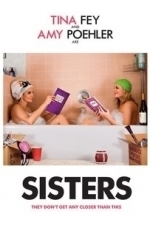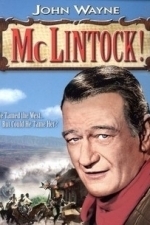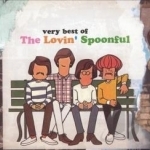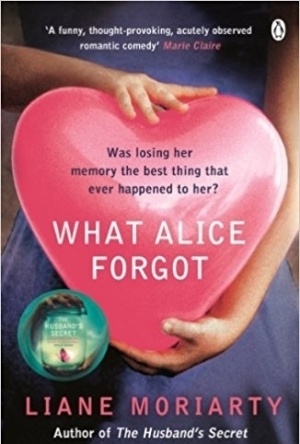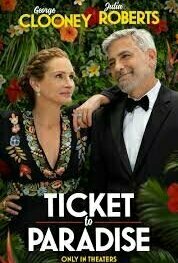Gareth von Kallenbach (980 KP) rated Sisters (2015) in Movies
Jun 19, 2019
Kate is a single mom who cannot hold a job and has recently been kicked out of the place she was living in. When their parents inform Maura that they are selling their childhood home, Maura helps Kate travel to Orlando in an effort to convince their parents to change their minds.
Seeing that the deal is pretty much done and that their parents are now in a condo, Maura and Kate opt to spend their time in their old home, and do whatever they can to discourage the prospective new buyers from following through on the purchase.
Kate has always been the wilder of the bunch and decides that Maura needs to let loose for once. As such they opt to recreate a party from their teens with as many of their former classmates as they can gather.
Naturally as anyone who has ever seen a house comedy knows, this is a disaster in the making as everything from drunken party games to a drug mishap and sex accidents follow.
It is different to hear Poehler and Fey use R-rated language as they have kept much of their career to the wink and a nod style of adult humor that their pioneered on Saturday Night Live but once you get used to it, it does not seem overly forced.
The two have a real chemistry and there are many funny scenes in the film, the biggest issue is the transition and setups can be a bit slow and at times awkward. This is to be expected from people who started in sketch comedy and neither of the two had a hand in writing the film as well.
Ike Barinholtz does great supporting work as a love interest and his “accident” is one of the funniest and most cringe worthy moments in film comedy.
If you can handle the slow parts and need some good laughs, then you will want to check out “Sisters’ as it is mindless and raunchy fun.
http://sknr.net/2015/12/18/sisters/
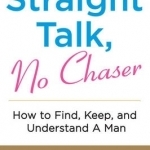
Straight Talk, No Chaser: How to Find, Keep, and Understand a Man
Book
In the instant Number 1 "New York Times" bestseller "Act Like A Lady, Think Like A Man", Steve...
Phillip McSween (751 KP) rated McLintock! (1963) in Movies
Jun 10, 2019
Acting: 10
It’s a tough task to ask someone not to like John Wayne and the things he brings to the big screen. He has a distinct way of capturing your attention and holding it with his no-nonsense demeanor and sheer bad-assery. I enjoyed the other performances as well, but, for me, it always goes back to Wayne and your sheer desire as a viewer to see what he’s going to do or say next.
Beginning: 2
Not a strong start in the least. Even past the first ten minutes, I spent a considerable amount of time trying to figure out just what the hell the plot was. A beginning that is mired in confusion is not a very good beginning at all.
Characters: 7
I’ll admit, George Washington McLintock is probably someone I would like to have a glass of whiskey with. He’s charming and doesn’t take any guff from anyone. Other fun characters included the Native American guy (whose name slips me right now) and Drago. If it weren’t for McLintock’s wife who was just a horrible character to deal with the entire movie, this category would have scored higher.
Cinematography/Visuals: 9
Conflict: 6
It’s hard to really appreciate conflict when you don’t know fully what the story is about. Throughout the movie, I was never really grabbed as there wasn’t enough action to keep me fully entertained. It’s like watching two dudes square up a bar, but all they do is push each other the whole time. I wanted more and damned if McLintock! wanted to give it to me.
Genre: 6
Memorability: 6
One of the reasons I will review a movie well after having seen it is to gauge how memorable it is. How many scenes stick out in my head days, weeks, sometimes months later? The answer as it relates to McLintock!: Not a whole damn lot. I remember one scene where they were fighting in a mud slide. I also remember a spanking. Outside of that…nothing. Mind you, I just watched this movie two months ago.
Pace: 7
Once the movie picks up, it holds on pretty consistently. Outside of a couple small lulls, it managed to hold my attention and keep me entertained enough to want to see what would happen next. I love movies and pacing is extremely important to me. It’s too bad the pacing here wasn’t enough to alter the overall strength of the movie.
Plot: 7
Yes, I finally figured out what the story was about. Once I had a better sense, it made the overall movie a bit more enjoyable. Pretty straightforward, we are looking at something that was good, not great.
Resolution: 2
Overall: 62
So why did I dislike this movie so much? Outside of a terrible beginning and ending, I think a lot of it has to do with Mrs. McLintock’s character. She was just a ghastly person, plain and simple, with not a redeeming characteristic in her body. And I don’t think she was even meant to be a villain, yet that’s how she came across. Probably won’t be watching McLintock! again anytime soon.
Hazel (1853 KP) rated I'll Be Home for Christmas in Books
Dec 7, 2018
Christmas can be a very difficult time for many people, especially if they are homeless. A selection of well known YA authors including Holly Bourne, Melvin Burgess and Marcus Sedgwick, have come together to produce an anthology of short stories that explore the idea of “home” during this festive period. Only a couple of the tales are about people living on the streets, however that does not mean those with a roof over their head necessarily have a home.
Once published, £1 of every copy of<i> I’ll Be Home for Christmas </i>sold will be donated to the British charity Crisis, an organization that offer their services to individual homeless citizens. They work all year round but advertise more heavily at Christmas. It is their hope that this book will increase awareness of homelessness and result in an increase of generosities this winter.
The fourteen short stories in this anthology all provide a different meaning of the word “home.” For some it is about having somewhere to live, for others it is about family, love and safety. The key connection between each author’s interpretations is the main character is unhappy or worried and does not feel a sense of home. A few tales result in a happy ending; unfortunately others are not fully resolved. Apart from a couple that take a sci-fi/fantasy direction, the authors have tried to keep their narratives as true to life in order to emphasise the problems many people in the UK, if not the world, face at Christmas and the year in general.
Being targeted at a young adult audience, most of the characters are in their late teens, dealing with issues that sadly many teenagers and children are faced with today. The same themes crop up in many of the stories, such as homosexuality, divorce, family or lack of, and the feeling of loneliness.
As stories go, the individual tales are nothing special. They are not exciting or gripping, as you would expect a novel to be, however some of the scenarios will stick with you long after turning the final page. Although set at Christmas time, these stories are not overly festive, largely due to the negativity the characters are facing. Even if you do not particularly enjoy the tales, it will not be a waste of time reading them. They will leave you with a greater awareness to the struggles of others during a time when “home” plays a vital part in people’s lives. Crisis hopes that the general public will become more mindful and willing to help out in the near future.
Johnny Marr recommended track Coconut Grove by The Lovin Spoonful in Very Best of the Lovin' Spoonful by The Lovin Spoonful in Music (curated)
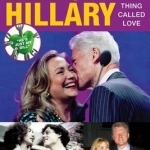
Bill & Hillary : So This Is That Thing Called Love
Darwin Porter and Danforth Prince
Book
On the campus of Yale University, in 1970, an "odd couple," Hillary Rodham and Bill ("Bubba")...
Heather Cranmer (2721 KP) rated What Alice Forgot in Books
Feb 27, 2019
The plot for What Alice Forgot is a complex and deep one. It's not just about Alice. It's also about her sister Elisabeth, whom we learn more through letters to her therapist, Jeremy. Elisabeth is trying to conceive. She keeps going through failed IVF treatments time and time again. We learn about her struggle and how she's handling that. We also learn about Frannie, Alice's surrogate grandmother, through letters with a man named Phil. At the center of the story is Alice. After falling off a stationary bike and bumping her head during spin class, Alice wakes up to find some can't remember anything that happened for the past 10 years. Alice believes she is still 29, and she finds it frustrating and a tad funny that she's really almost 40 years old. Alice can't believe who she's turned into at 39. She would hate herself! The book explains if Alice will be more loving and carefree like her 29 year old self or if she'll be that rushed, cynical woman she was at 39 when and if she gets her memories back. There were one or two plot twists although I wouldn't consider them major. All of my questions were answered, and Liane Moriarty did an excellent job of tying up any loose ends and writing a great epilogue explaining what happened to each character years later.
I loved the characters in What Alice Forgot! I felt they were all very fleshed out and felt like I was reading about real live people. It was interesting to see Alice at odds with herself when her old self was surprised by what her new self (before she hit her head and lost her memory for the past 10 years) was like. I, personally, liked Alice after she forgot her memory. She was more fun loving and carefree. New Alice was always rushed and snippy. I also liked Nick, Alice's soon to be ex-husband. Although he was rushed with work, I loved how he still would help out Alice. I really related to Alice's oldest daughter, Madison, the most. Madison had experienced so much in her short life, so she was acting out a lot of the time. I just wanted to hug her. Alice's youngest daughter, Olivia, was really cute and funny. I loved how she referred to everything as "darling." My heart really went out to Elisabeth. I just wanted Elisabeth to finally have a baby of her own after miscarrying so many times in the past. Frannie was such a fun character! I was moved by her love of Elisabeth and Alice, and I really appreciated her humor at times!
The pacing for What Alice Forgot was a bit hit and miss sometimes. There were a lot of times, mostly during the first 60 percent or so in the book, that I thought about just giving up and finding something else to read. However, I would read a bit more, and the pacing would pick up again. Then it would go back to being slow. Once I got about 65 percent through the book, the pacing found its footing, and it was smooth sailing from there. My eyes devoured the rest of the pages, and I couldn't wait to find out if Alice would get her memory back or if she'd end up with Nick or Dominick. (I was Team Nick throughout the book.) I also wanted to know what would come of Elisabeth's IVF treatment. I really wanted her to have a baby of her own!
Trigger warnings for What Alice Forgot include miscarriages, failed fertility treatments, amnesia, divorce, death, drinking, some profanities, and a few mentions of sex but no details.
Overall, What Alice Forgot is a lovely read even though the pacing is a bit off for the first half or so in the book. Luckily, the pacing redeems itself, and with a great plot and fantastic characters, this book does make a good read. I would definitely recommend What Alice Forgot by Liane Moriarty to everyone aged 16+ who loves a feel good novel.
BankofMarquis (1832 KP) rated Ticket to paradise (2022) in Movies
Nov 10, 2022
If so, do I have a film for you.
The George Clooney/Julie Roberts Romantic Family Comedy TICKET TO PARADISE is a slight, somewhat fun lightweight film that won’t eat up too many brain cells while watching, but you’ll walk away satisfied and entertained if this sort of thing is in your wheelhouse. It is a movie geared towards older adults who just want to get away from the world and watch beautiful people in beautiful costumes tromping around beautiful scenery.
Written and Directed by Ol Parker (MAMA MIA: HERE WE GO AGAIN, naturally), TICKET TO PARADISE tells the tale of an unhappily divorced couple (Clooney and Roberts, of course) who must overcome their differences and join together to stop their daughter from a hasty marriage - a mistake they both think they made when they married each other.
The opening of this movie is frenetic and tries just a bit too hard to establish the hate/hate competitive relationship between these 2 characters. Roberts fairs better in this part as she settles into her character fairly quickly - and she becomes the rock of the film. From the get go you understand her character and when all else fails in a scene, you know that Roberts will be there to rescue things. It is a steady, sturdy performance that shows that Roberts “still has it” as a movie star.
Clooney has more of a rollercoaster of a performance. For my tastes he tries to hard to be comedically funny in the first part of the film (a fault of his that can be scene in such Clooney comedic failures as O BROTHER WHERE ART THOU and BURN AFTER READING), but once we get past the initial scenes, Clooney settles down to be a somewhat comedic version of the calm, suave and sophisticated Clooney that we have grown to know and love.
The supporting characters are underwritten and are thin and nondescript with character arcs that really go nowhere. This is a shame for Billie Lourd (as the Best Friend of Clooney and Roberts’ daughter) and the couple that plays the grooms parents were interesting characters that could have/should have been fleshed out more.
The script and Direction by Parker are nothing special. It’s not bad but it also doesn’t elevate the proceedings above the pleasantness that it is - with one key exception. About 1/3 of the way through the film, Clooney launches into a monologue about how he and Roberts’ seemingly wonderful love fell apart, leading to divorce. It is a beautifully shot and directed scene and Clooney absolutely nails the speech mixing in anger and regret skillfully. This scene made me sit up in my chair thinking that maybe this film was taking a deeper, more dramatic turn at this point and it is shifting from a RomCom to a family drama.
But, alas, we head into a scene where Clooney and Roberts get drunk and shenanigans ensue. True…it looks like good friends Clooney and Roberts are having a good time playing with each other in the beautiful location of this film…but this fun never really translates to the audience.
The perfect airplane film - there is no intricate plot points that you’ll miss if you dose off for a moment or 2 - but perfectly, acceptably entertaining, this TICKET TO PARADISE could be worse…but could have been better.
Letter Grade: B-
6 stars (out of 10) and you can take that to the Bank(ofMarquis)

AALYYA : Dating, Relationship & Self-Help Magazine
Magazines & Newspapers and Lifestyle
App
AALYYA Magazine focuses on Dating advice, Relationships, and Personal Development for Women....
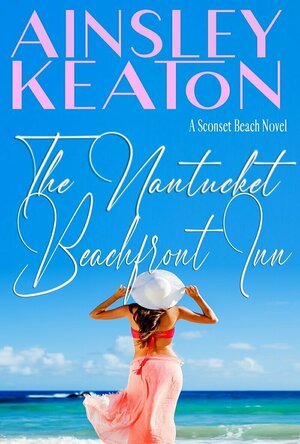
The Nantucket Beachfront Inn (Sconset Beach #1)
Book
She's 54, broken-hearted, and starting over.... High-powered New York attorney Ava Flynn finds...
Contemporary Women's Fiction
